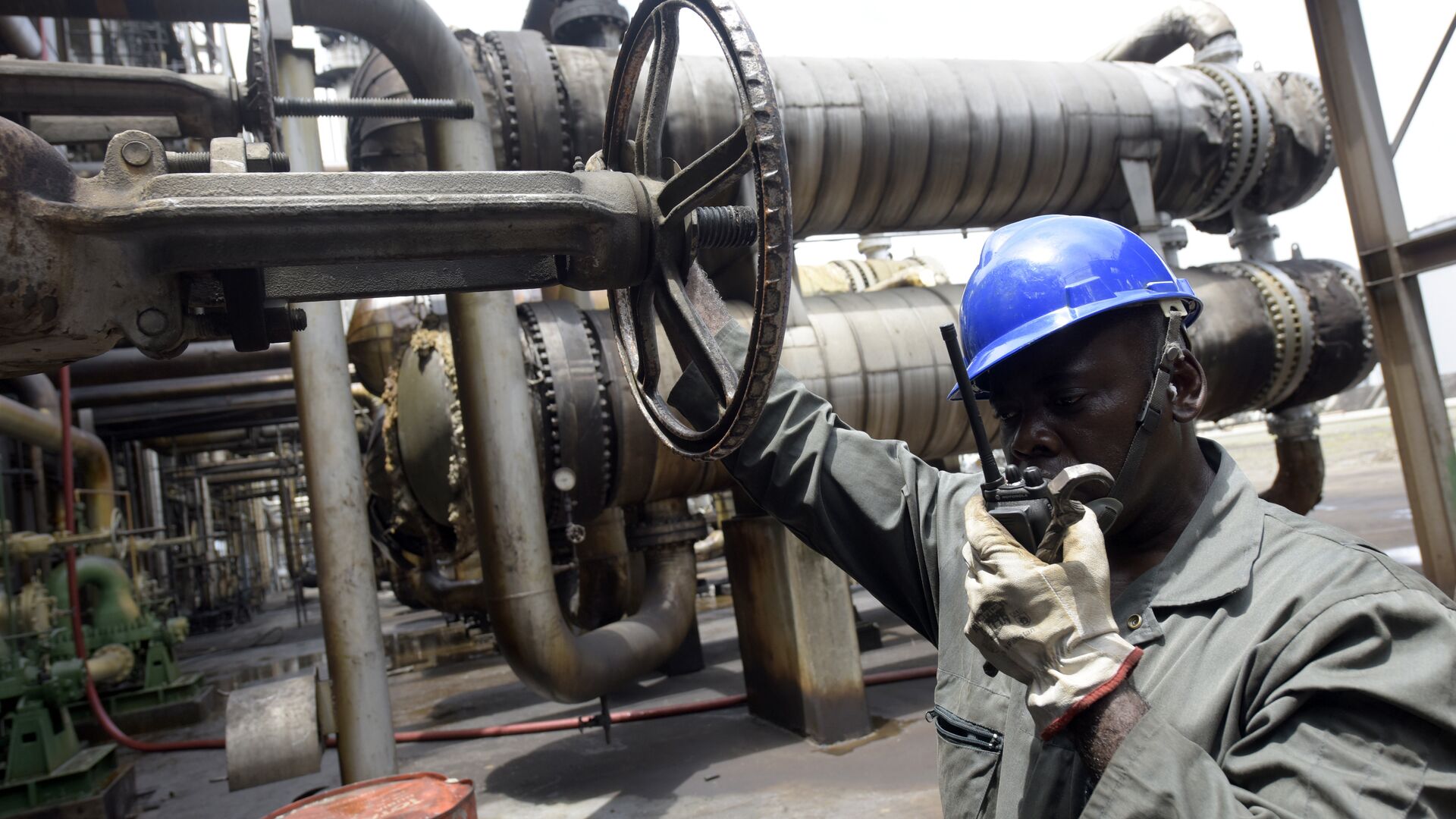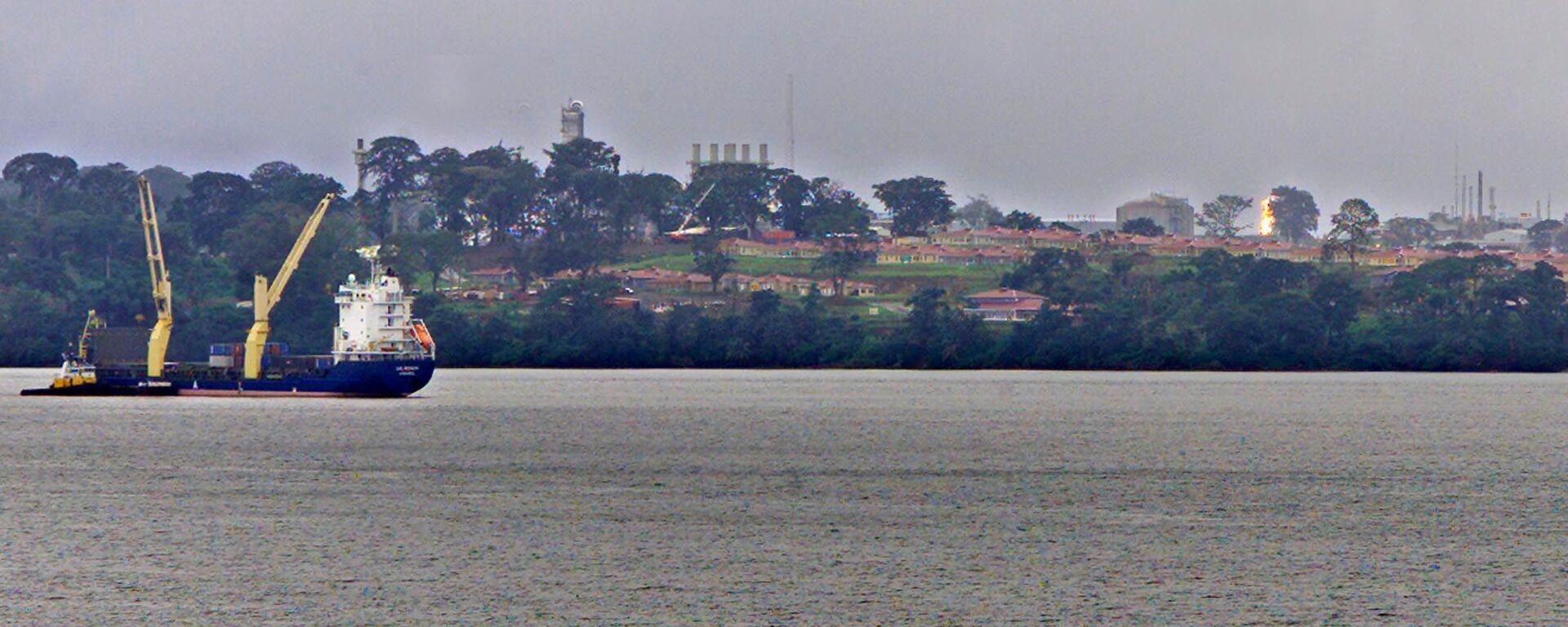Prof: Russian Gas is Irreplaceable, But If EU Wants More African Fuel It Should Invest First
18:01 GMT 11.07.2022 (Updated: 11:44 GMT 09.02.2023)

© AFP 2023 / PIUS UTOMI EKPEI
Subscribe
The EU is striving to buy as much natural gas from African producers as possible in order to substitute Russia's banned hydrocarbon supplies, according to Bloomberg. Africa, however, desperately needs the fuel to lift millions out of poverty.
"For years, the EU neglected if not completely ignored the needs of African countries for investment in developing their infrastructure and also developing African energy reserves for the benefit of the African people," explained Dr. Mamdouh G. Salameh, a visiting professor of energy economics at the ESCP Business School in London.
In recent reports, Bloomberg has nailed Europe's hypocrisy relating to its sudden rush for African liquefied natural gas (LNG), stressing that "[The EU] doesn’t want to fund projects that would allow the world’s poorest continent to burn more of the fuel at home."
While Nigeria’s Bonny Island produces "enough liquefied natural gas to heat half the UK for the winter," the fuel is largely consumed by Spain and Portugal, with the island's locals still using black-market kerosene and diesel to light wood stoves and power electricity generators, according to Bloomberg.
"Western nations even criticized China when it invested in Africa’s infrastructure and energy resources at a time when they were refusing to invest in Africa either because of sanctions they imposed on African countries or because of their old imperialistic streak," the international oil economist and one of the world’s leading experts on crude noted.
While lambasting the EU for hypocrisy and betrayal of the green agenda, Bloomberg shied away from shedding light on the root cause of the problem: the bloc has found itself between a rock and a hard place because of self-harming sanctions slapped on Russia's energy sector over Moscow's special operation in Ukraine.
Earlier this year, the EU pledged to end its dependence on Russian fossil fuels before 2030, following in Washington and London's footsteps. In April, Brussels laid out targets to slash its demand for Russian natural gas by two-thirds by the end of 2022. A month later, Bloomberg reported that the bloc is trying to curry favor with African hydrocarbon producers to substitute at least part of Russia's gas deliveries this year. The EU sees western and northern African states as alternative suppliers.
African Gas Infrastructure Needs Investments
"The major obstacle in tapping Africa’s energy reserves is overcoming underdeveloped infrastructure," explained Salameh. "The two relatively significant African LNG exporters are Algeria - currently exporting 29.3 million tonnes (mt) - and Nigeria – with an export capacity of 22.2 mt. The rest of Africa’s producers have limited production and export capacities with neither LNG plants nor gas pipelines."
The oil expert noted that the EU is already importing LNG from both countries. "These two countries may be able to raise their LNG exports a bit in the next few years but it will still be a drop in the ocean of the EU’s gas needs," the academic said.
Moreover, if the entire LNG exports from Algeria, Nigeria and Senegal were to be exported to the EU, they would only replace 31% of Russian gas supplies, according to Salameh. However, even this hypothetical scenario is unrealistic because part of African LNG exports are already contracted elsewhere, he highlighted.
"It is highly unlikely that African LNG exporters along with the United States, Qatar and Australia will be capable of replacing Russian gas supplies to the EU now or in the foreseeable future," the oil expert emphasized. "The reason is that the bulk of US, Qatari and Australian LNG exports are bought years in advance by customers in the Asia-Pacific region; and partly because the EU has limited LNG import capacity and storage."
A potential way out for the EU would be to invest heavily in the African energy sector. However, Salameh doubts that the bloc has immediate plans to do this, particularly when it could be facing a harsh recession soon and is already paying horrendous energy bills.
Even if the EU pours billions into hydrocarbon extraction and transportation, it would still take considerable time to get these projects up and running.
"In February 2022, Niger, Algeria and Nigeria inked an agreement that aims to revive the Trans-Saharan Gas Pipeline project that aims to link Nigeria’s LNG plants with Hassi R'Mel in Algeria, passing through Niger and carrying 30 billion cubic metres (bcm) of natural gas to European markets every year. However, I doubt very much if this pipeline will see the light of day in even the next 10 years," said Salameh.
The academic went on to argue that the EU is wasting its time and deluding itself trying to switch from Russian gas supplies which are irreplaceable now or even in 15-20 years.
"The EU’s efforts to diversify its gas needs away from Russia is a painstaking job that will take years to accomplish if ever," he said. "Still, the EU may have no alternative but to invest in Africa if it continues to be hell-bent on reducing its dependence on Russian gas."




